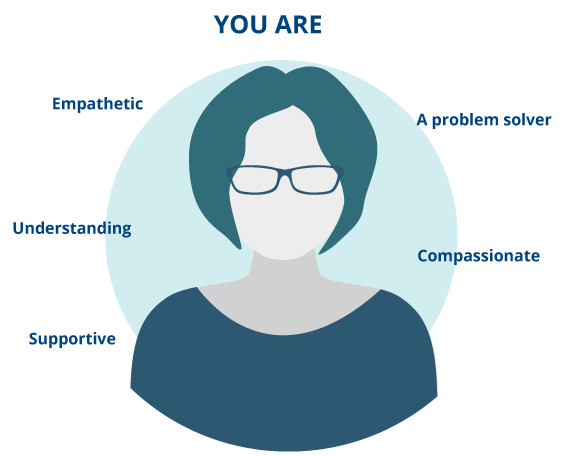Psychology: Degrees, Careers, Salaries & More
Psychology is used to help better understand and solve some of the most challenging problems that people face in their everyday lives. Diving into the relationships between brain function, behavior, and environment, psychologists develop new ways for people to overcome their issues and improve how they live in today’s increasingly complex world.
Contents
What Does a Psychologist Do?
There are many different types of psychology, but in general, roles within the field fall into 1 of 2 categories: research psychologists or clinical and counseling psychologists. The former uses the scientific method to pose psychological theories, conduct research, interpret data, and generate new knowledge in the field. The latter group works directly with patients to identify emotional, behavioral, or mental concerns, and develop treatment plans that address each client’s individual needs.
Depending on the exact role, psychologists might work in clinics, hospitals, private practices, universities, secondary or elementary schools, public or private organizations, correctional facilities, or other settings.
Psychologist vs. counselor
There’s a good amount of overlap between the job responsibilities of psychologists and counselors, but there are also some key differences. To become a licensed psychologist, professionals in the field typically need to hold a doctoral degree. This allows them to work independently with patients, conduct new research, and/or teach at the graduate level. Counselors, on the other hand, usually only need a master’s degree. Because of this, they may provide much of the same assessment and treatment as clinical and counseling psychologists, but they won’t conduct research or teach at a high level.
Neither of these roles should be confused with a psychiatrist, which is discussed in more detail below.
Psychologist vs. psychiatrist
A psychiatrist is a doctor who has attended medical school and is legally allowed to prescribe medication. Neither psychologists nor counselors can do so. These medications can help patients with issues such as depression, anxiety, PTSD, substance abuse, sleep disorders, and much more. Often, patients attend sessions with a psychologist or counselor while also seeing a psychiatrist to discuss medication options or adjustments.
There’s also a difference between psychologist education requirements and those needed to become a psychiatrist. While both roles are doctoral-level clinicians, psychologists spend all of their studies—typically between 5 and 8 years—focused on all things mental health. Psychiatrists spend the majority of their training in medical school and a shorter period of time learning about mental health in a residency.
Psychology Careers
According to the American Psychological Association (APA), there are more than 100,000 licensed psychologists within the United States. The majority of these professionals work under the general banner of clinical or counseling psychology. These roles can address a board range of mental, emotional, and behavioral problems in a wide variety of settings. Within these fields, however, there are even more specialized psychology jobs based on factors such as patient population, industry, and more.
Child development psychologist
Child psychologists apply their scientific knowledge to delivering services that affect infants through adolescents, assessing how family life and social contexts influence their development and behavior. Issues they address may be related to emotional problems, mental disorders, physical disabilities, health concerns, stress management, and more.
School psychologist
School psychologists work specifically in educational settings, with most of these roles being in public K–12 schools. A school psychologist works alongside students, teachers, administrators, and parents to address concerns such as behavioral issues, bullying, social anxiety, learning disabilities, problems at home, and other issues that may affect the quality of education a student receives.
Educational psychologist
Educational psychology may sound similar to school psychology, but these roles are actually very different. While school psychologists work to address student needs directly, educational psychologists study how people learn and try to develop ways to improve upon teaching materials and techniques. Working in universities, research institutions, education departments, or testing companies, they may study how things such as culture, technology, and other factors influence a person’s ability to learn.
Geriatric psychologist
Geriatric psychologists, often just called geropsychologists, handle issues that affect the elderly. This could mean helping them through mental and emotional effects that can come along with issues such as aging, illness, pain, memory loss, death, disease, and more. They might work in hospitals, clinics, or long-term care facilities, or they may work independently and visit patients in their private homes.
Forensic psychologist
Forensic psychologists use their clinical expertise within the legal system to positively impact victims, offenders, law enforcement, and the communities where they live. They can conduct psychological assessments on criminals, provide counseling to victims, help select juries, make recommendations on probation, and affect the outcome of cases by serving as an expert witness in court.
Industrial-organizational psychologist
Industrial-organizational (I/O) psychologists apply research methods and psychological principles to the workplace. I/O psychs can conduct performance reviews, oversee training sessions, run market or consumer research, and implement policies and procedures that improve the well-being of employees and the company as a whole. People with these degrees may also find themselves in roles such as HR.
Sports psychologist
Sports psychology is unique in that, instead of working with more common client populations, you work specifically with athletes, coaches, and trainers to keep them on the path toward peak performance, condition, and health. Professionals in these roles might counsel players through the mental aspects of the game, teach coaches how to improve team dynamics, or collaborate with trainers to boost dedication and morale.
Psychologist Salary & Job Growth
Salaries vary depending on the exact role you hold, where you live, and the setting in which you work. That said, according to the U.S. Bureau of Labor Statistics (BLS), the median psychologist salary for roles of all kinds is $92,740 per year.

$147,420
Organizational Psychologists

$96,100
Clinical and Counseling Psychologists

$92,740
General Psychologists

$117,750
All Other Psychologists
Through 2032, job opportunities for psychologists are projected to increase by 6.1% says the BLS, a rate that’s on par with the national average, which is 3%, for all occupations.
Job Growth
6.1%
Skills You Need

Learn which personality traits and professional skills you’ll need to be a successful clinical or research psychologist.
You Should Have
- Strong verbal and communication skills
- Good writing skills
- Goal-setting skills
- High ethical standards
- Clear boundaries
How to Become a Psychologist
As with many careers, becoming a psychologist involves numerous steps—evaluating your goals, earning your degree, and gaining your state-issued license.
1
Evaluate your skills
To be a successful psychologist, you must possess certain abilities and traits. These include:
- Strong communication skills
- The ability to assess emotions and behavior
- Empathy for others
- High ethical standards
- A calm and supportive attitude
- The desire to work with people from all walks of life
2
Research careers and educational tracks
To become a legally licensed psychologist, most states require you to hold a doctoral degree. The exact program and degree type you choose will depend on your individual career goals. If you plan to work directly with patients, the educational path you take might be toward a Doctor of Psychology (PsyD), which emphasizes practical application of the science. If you wish to work in research or teaching, you might opt to research Doctor of Philosophy (PhD) programs instead, which put a larger focus on these areas.
3
Earn a psychology degree
To earn your doctoral degree and ultimately your license, you’ll first need to earn a bachelor’s in psychology or a closely related field. You’ll then need to go on to earn a master’s followed by a doctorate, though you may find a dual degree program that allows you to work towards both degrees at the same time. No matter what type of programs you choose, they should all be accredited by the APA.
Again, for your doctorate, you’ll likely choose between a
Completing all of the degrees from a bachelor’s through a doctorate could take anywhere from 9–14 years. You’ll also be required to complete thousands of hours of practicums and internships. A dissertation or equivalent project will likely be necessary, as will many more hours of supervised postdoc experience. Because of this, it’s incredibly important to make sure you’re dedicated to working within the field of psychology.
4
Become a licensed psychologist
Psychologists are licensed through their individual state’s psychology board. Each state has different requirements, so it’s important to verify what exact requirements you need to meet regarding education, internships, and work experience.
If you meet your state’s requirements, you’ll then be eligible to sit for the Examination for Professional Practice in Psychology (EPPP) administered by the Association of State and Provincial Psychology Boards. This national exam is made up of 225 multiple-choice questions and, in most cases, must be passed with a score of at least 500 out of 800.
Most states also have their own jurisprudence exams, which cover the unique laws and regulations regarding the practice of psychology in that state. Meeting the requirements and passing both of these exams allows you to earn your official license from the jurisdiction where you applied.
5
Find a psychology job
Joining a professional network is not only a great way to network and stay up to date on information in the field, but it can also help you learn about job opportunities. You can find job listings through the APA’s online career center or through other organizations like the Society for Personality and Social Psychology or the National Association of School Psychologists.
Psychology Degree Types
Degrees in psychology can be found at all levels, however, in most cases, a doctorate and a license are required to practice independently.
Associate degree in psychology
An associate degree with a concentration in psychology can be your entryway to higher education. Though you won’t be able to practice psychology with this degree, you can complete your first two years of college at a lower cost than you would if you went straight to your bachelor’s. However, there are careers related to psychology that you could pursue with just this degree. These include human service or social work assistants, home care aides, correctional officers, and psychiatric technicians or aides.
Bachelor’s degree in psychology
Another stepping stone to higher education, a bachelor’s degree in psychology can lay the groundwork for your master’s degree and doctorate. Again, you can’t practice in the field independently, but there are other roles that are related. With a bachelor’s, you could pursue a career as a human resources specialist, community service manager, rehabilitation assistant, or career counselor.
Master’s degree in psychology
You can deepen your knowledge of the psychology field even further with a master’s degree. At this level, you’ll likely tailor your education with a more highly focused concentration based on the exact kind of career you want. People who get their master’s in psychology most often go on to earn their doctorate, though that’s not always the case. Completing your education at this level can prepare you for roles such as a marriage and family therapist, mental health counselor, social worker, and HR manager. Unlike with other psychology jobs, in many cases, you can practice as a school psychologist with only a master’s.
Doctoral degree in psychology
With a PhD, PsyD, or other relevant doctoral degrees, you’ll gain the knowledge you need to pass the EPPP and become a legally licensed psychologist. This allows you to work without supervision and in private practice. You can work in more general clinical or counseling psychology, or specialize in subfields such as education, forensics, child development, substance abuse, health, psychoanalysis, and more.
Online & Accelerated Options
There are many programs that offer online psychology degrees, however, keep in mind that both master’s and doctoral programs require you to complete fieldwork. You’ll need to attend practicums and participate in internships in person.
Accelerated options are also an option for people who want to earn their degree more quickly. These programs differ depending on the school, but often involves applying credits from previous education or work experience, passing tests that waive the need for a certain course, or taking intensives that allow you to earn you credits in a shorter period of time.
Is Financial Aid Available?
There are several different types of financial aid available for students seeking degrees in psychology. The first step is to fill out the Free Application for Federal Student Aid (FAFSA). This form helps the government determine how much assistance you’re qualified to receive. This aid can come in the form of loans, grants, or work-study stipends. You can also apply for loans through banks and other private institutions.
You might also qualify to receive scholarships based on academic merit or other criteria. Scholarships can be given through your school or by outside organizations. If you’re pursuing a master’s or doctoral degree, fellowships are also a great way to fund your education. Given to full-time students, these financial awards may be short- or long-term and often come with additional stipends and benefits.
Students in psychology PhD programs are also likely to receive at least partially waived tuition for assisting with research or teaching. A study conducted by the APA in 2016 found that 94% of advanced doctorates in public schools and 77% in private schools offer tuition remission for these assistantships.
| Degree Type | Percentage of Schools Offering Tuition Remission for Teaching and/or Research |
| Doctoral – Public (First Year) | 86% offering 81% of aid is full waiver |
| Doctoral – Public (Advanced) | 94% offering 81% of aid is full waiver |
| Doctoral – Private (First Year) | 53% offering 69% of aid is full waiver |
| Doctoral – Private (Advanced) | 77% offering 66% of aid is full waiver |
Unfortunately, tuition remission isn’t as common for PsyD students, as these programs don’t strongly emphasize teaching or research. You can, however, still find fellowships, scholarships, and work-study programs that can help you cover the cost of your education.
Are psychologists eligible for student loan forgiveness?
Through the Public Service Loan Forgiveness Program, you can relieve a portion of your debt, though you must meet certain criteria. These include having direct loans, making at least 120 qualifying payments, and securing full-time employment in a government agency or tax-exempt nonprofit. Additionally, many states also have their own loan forgiveness programs with varying requirements.
Professional Organizations for Psychologists
Becoming a member of a professional organization can be very beneficial to your career. You can network with other psychologists, gain specialty certification, stay up to date on advancements in the field, and even find opportunities for jobs. While there are many different psychology organizations in the U.S., the largest is undoubtedly the APA. Within the association, there are 54 divisions to cover nearly every subfield of psychology you can think of. Some other popular organizations include:
